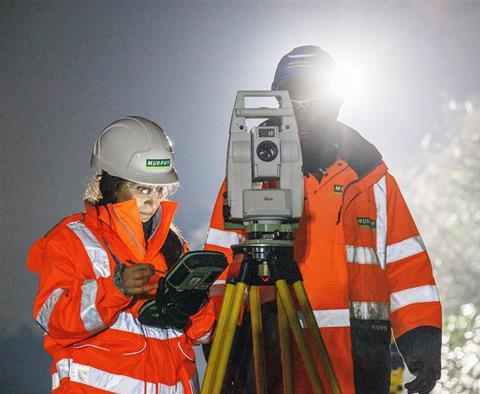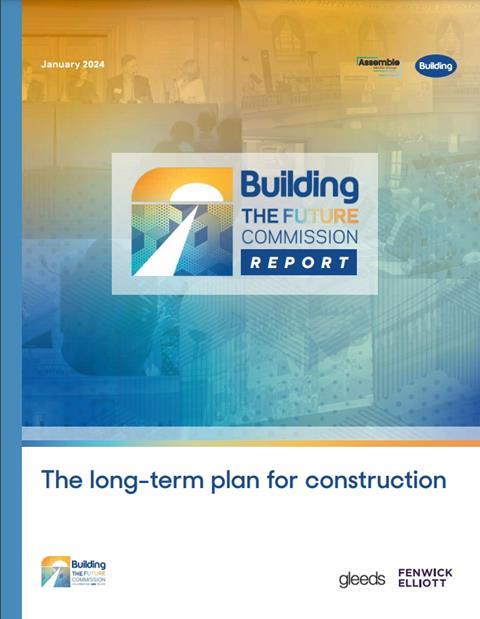Providing young people with opportunities to earn while they learn helps to tackle the skills crisis and encourages the next generation of talent, says Dawn Moore of Murphy
This week marks the 16th anniversary of the first National Apprenticeship Week. Launched in 2008 – and just like many teenagers – the initiative has been far from plain sailing.

From a lack of focus on quality, to questions regarding government funding and the effectiveness of incentives for employers, the scheme has had its critics during this period. However the undeniable fact though is that apprenticeship starts have dramatically increased – from 18,000 in 2008 to 522,000 in England alone last year.
Providing people with opportunities to earn and learn, apprenticeship programmes generally span up to five years depending on the course, and blend practical work with college qualifications, ensuring that apprentices gain hands-on experience while honing their theoretical knowledge.
The number of companies participating in apprenticeship schemes is actually falling
However, while the construction industry has historically been a key supporter of apprenticeships, regularly taking more apprentices than several other sectors, it is surprising to note that the industry has not yet exceeded the highs of 2018/19. The number of companies participating in apprenticeship schemes is actually falling.
The most recently available data from the DfE and CITB shows that, in 2022/23, the industry saw 33,900 apprenticeship starts, a small rise on the 32,400 starts the previous year but still some way short of the 35,500 starts delivered in 2018/19.
>> Also read: I’d recommend it to anyone: why an apprenticeship is better than university
>> Also read: ��ɫ����TV The Future Commmission findings: Attracting, engaging and retaining the next generation
That apprenticeships are yet to regain their pre-covid highs should be a real cause for alarm: here is a ready-made, proven way to inject fresh talent into our sector… and yet numbers are falling.
At Murphy, we are the largest direct employer of emerging talent in the construction industry and our goal is to have 10% of our headcount made up of emerging talent by 2026. We have seen at first hand what apprentices can bring to the table when it comes to fresh ideas, new ways of thinking and different approaches.
Apprenticeships diversify the construction workforce and provide equitable opportunities to individuals who may face challenges in securing employment.
Everybody knows that our industry is facing a skills crisis and, with an ageing workforce approaching retirement and traditional education often failing to provide the specific skillsets we need, the talent pipeline is running dry.
Apprenticeships offer a game-changing solution, equipping individuals with the practical know-how and industry-specific knowledge by providing them with the opportunity to learn under the guidance of our seasoned professionals. The result is that our sector is able to bring in individuals who can hit the ground running, contributing meaningfully from day one.

Similarly, with our industry at a crossroads when it comes to embracing developments such as ��ɫ����TV Information Modelling (BIM), Gen AI and modular construction, in order to stay ahead, we need a workforce comfortable with cutting-edge technologies and sustainable practices.
Apprenticeships, by their very nature, are adaptable and dynamic. They can be readily updated to integrate these evolving skills, ensuring our future workforce is equipped to handle the challenges and opportunities of tomorrow.
However, we need to make sure that high-quality apprenticeships are the norm, not the exception. This means strong employer commitment, robust training programmes, and rigorous quality standards.
Additionally, regional disparities in apprenticeship uptake must be addressed to ensure that all parts of the UK benefit from this incredible opportunity, rather than just the lucky few.
Apprenticeships are not just about filling empty positions; they are about investing in the future of our industry
The long-term benefits far outweigh the challenges. Apprenticeships are not just about filling empty positions; they are about investing in the future of our industry. We are not just building structures, we are building careers, fostering social mobility and creating a more inclusive and diverse workforce.
It is about giving individuals – regardless of background – the chance to contribute to something bigger than themselves, to be part of something meaningful. So, let’s stop viewing apprenticeships as a charitable exercise and start recognising them for what they truly are: the cornerstone of a thriving construction sector.
By working together, the government, industry leaders and training providers can create a robust apprenticeship ecosystem that attracts new recruits, equips them with the skills they need and empowers them to build a brighter future for themselves and our nation.
This is not just about bricks and mortar; it is about building a legacy, one skilled apprentice at a time. So let’s get to work.
Dawn Moore is group people and communications director at J Murphy & Sons
Improving skills in construction
>> Click here for all our coverage about skills and education for the ��ɫ����TV the Future Commission, including accounts of professionals’ unusual routes into construction, and read the full



























No comments yet